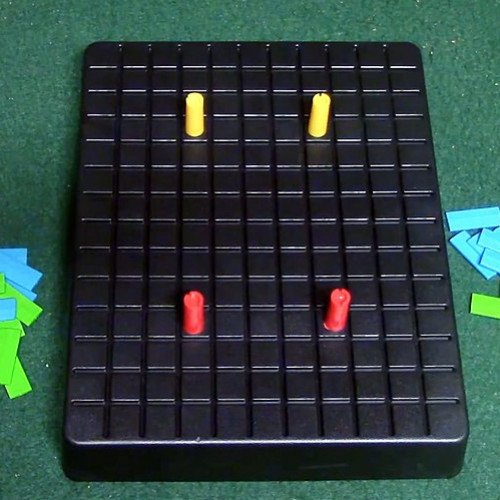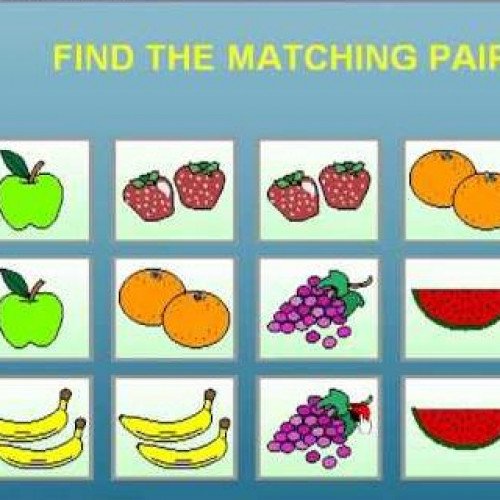BLOCKADE VS MATCHING GAME

BLOCKADE
Blockade (also known as Cul-de-sac) is a strategy board game for two players with the motto "beat the barrier". It's played on a board with an 11x14 grid of spaces, barriers and 2 mobile playing pieces per player. The object of the game is to maneuver ones pieces around barriers and into the opponents starting spaces. The game is long out of production. Blockade was created by Philip Slater in 1975. In United States, it was published by Lakeside under the name Blockade. In France, Germany, Sweden, and United Kingdom the game was published by Lazy Days under the name Cul-de-sac (French, translation dead-end). The rules are simple, but it provides an interesting and deep game. Each player are given 2 pawns, 9 green walls (placed vertically), and 9 blue walls (placed horizontally). Pawns are placed on their starting locations on each of the four corners of the 11×14 board. First players' starting location is at [4,4] and [8,4], and the second players' is at [4,11] and [8,11]. The object of the game is for each player to get both their pawns to the starting locations of their opponent. The first to do so wins. On each turn, a player moves one pawn one or two spaces (horizontally, vertically, or any combination of the two) and places one wall anywhere on the board (useful for blocking off their opponent's move). Walls always cover two squares and must be placed according to their color (vertically or horizontally). Pawns may jump over other pawns that are blocking their path. Once players are out of walls, they keep moving pawns until one wins.
Statistics for this Xoptio

MATCHING GAME
Matching games are games that require players to match similar elements. Participants need to find a match for a word, picture, or card. For example, students place 30 word cards; composed of 15 pairs, face down in random order. Each person turns over two cards at a time, with the goal of turning over a matching pair, by using their memory. Most matching games are objective, with correct answers in the rules for what counts as a match, pair, etc. Some however, like Dixit or Apples to Apples, are about subjective matches picked by one or more judge players. Here the correlation between a match holds value only as other players decide it, but rules dictate who will make those decisions and when.